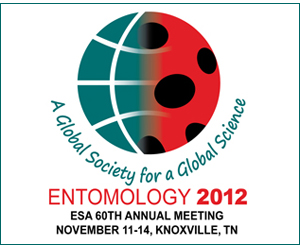ESA Pacific Branch Annual Meeting Online Program
Viability of Phasmid Eggs Post-Digestion by Granivorous Birds
Monday, March 26, 2012: 1:30 PM
Salon G (Marriott Downtown Waterfront )
The eggs of several Phasmatodea (stick insects) species bear strong resemblances to plant seeds. Such mimicry could increase predation on the eggs by vertebrate granivores, especially on eggs that are not buried by ants. In contrast, predation could be beneficial to the insects if the eggs can survive the digestive tract and hatch afterwards. This experiment tests the hypothesis that granivorous birds can act as dispersal agents for phasmid eggs. The eggs of three walking stick species—Extatosoma tiaratum, Ramulus nematodes, and R. artemis—were offered to two species of terrestrial, granivorous bird: quail (Coturnix japonica) and chickens (Gallus gallus domestica).The birds consumed the eggs eagerly. Examination of the resulting manure showed that most eggs were completely digested. Only one unbroken egg was recovered out of nearly one thousand eggs fed, suggesting that these bird species could not disperse phasmid eggs. Seed-mimicry’s fitness costs must be mitigated in nature to explain its prevalence in the Phasmatodea.
Previous Presentation
|
Next Presentation >>


